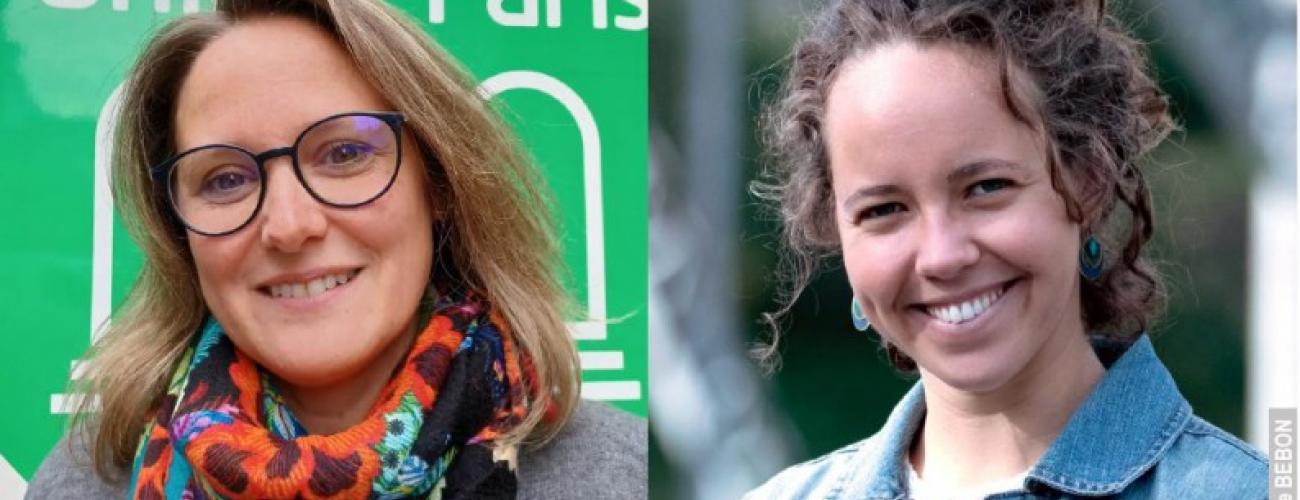
Newsletter 14: alternative admissions routes at the ParisTech schools
Interview with Virginie Lair, Director of Academic Programmes at Chimie ParisTech – PSL and Vanina Amblas, a second-year engineering student who joined the Institut d’Optique Graduate School after doing a 3-year undergraduate degree at Université de Rennes 1
Why did your school decide to offer alternative entry routes?
VL : Many students join Chimie ParisTech – PSL after taking the CCMP national competitive exam (Concours Commun Mines-Ponts). The “parallel admissions” route (admissions parallèles, also known as admissions sur titre) allows suitably qualified candidates to apply to the ParisTech schools without following the conventional entry route (2 years of CPGE preparatory classes, followed by a competitive entrance exam). This helps us attract a larger, more diverse pool of students.
Have you achieved what you hoped to by setting up this new entry route?
VL : For us, offering a parallel admissions route was primarily about further diversifying the student community, although we do already have students from all over France, and a significant number of women in each intake. The parallel admissions route has brought us more international students, in particular in the second year (around 20 students out of a total intake of 120). Some years we also get more bursary and scholarship students applying via this track (international students who have secured a state-funded scholarship or bursary, or French students who have a financial support bursary from the CROUS). This year for example, 50% of the first-year engineering students who joined via the parallel admissions route hold a bursary, compared to 20% of students who joined via the CPGE route.
What steps have you taken to publicise the new entry routes?
VL : Every year, representatives from the school’s international relations departments visit our overseas partner universities as part of the ParisTech international admission programme. Within France, it hasn’t been necessary to run dedicated promotional activities as we already receive a lot of applications. Information about how to apply for parallel admission into the first/second year of the engineering cycle is published on the school’s website. We also promote all the admissions routes offered by the school as part of our general recruitment activities, which include attending careers fairs, organising events, and sending students into high schools and colleges.
What tips would you give to students interested in applying for parallel admission?
VL : The most important thing is to find out what the school offers. I would advise candidates to browse the school’s website to find out about its mission, the courses and career prospects it offers, and how these differ from university programmes or engineering programmes at other schools. Refresher classes are sometimes available for students joining via a parallel admissions route.
Can you tell us a little about your background? Why did you choose a ParisTech school for your engineering course?
VA : I did an undergraduate degree in Physics at the Université de Rennes 1. Alongside my degree, I started an engineering master’s programme (CMI) in Physical Instrumentation via the Figure network. I completed the first two years of my studies in Rennes, and the third year as an Erasmus student at the University of Lund in Sweden. By my second year I knew I wanted to apply to the Institut d’Optique, because I was fascinated by the science of light, and it’s a field with a broad range of applications. I’m now a second-year student at the Institut d’Optique, and I’m doing an apprenticeship at CEA Saclay. I want to work as an engineer because my goal is to pursue a scientific career in a stimulating field where project-based work is key, and where I can help tackle societal and environmental issues.
How did you join the Institut d’Optique?
VA : I bought a Onisep magazine, which lists all the engineering schools in France. As I was flicking through, I spotted the name ‘SupOptique’, and had a lightbulb moment – I didn’t realise there was such a thing as an optical engineer! Optics covers all the parts of physics that I love – quantum physics, wave physics, electromagnetism, and so on. I therefore sat the GEI UNIV competitive entrance exam, which gives access to a number of engineering schools, with the aim of getting into the Institut d’Optique. There are two parts. You have to submit an application (cover letter, letters of recommendation, academic transcript), and then sit a written exam and oral exams. Because I was in Sweden on my Erasmus year, I couldn’t take the written exam and was given a special dispensation. I got through that stage and sat the oral exams – a general interview about why I was applying, then one in maths and one in physics. One thing I didn’t know, which might be useful for other candidates applying for parallel admission, is that SupOptique also run an internal competitive exam.
What was it like to join the school, both in terms of your course and student life in general?
VA : Both aspects went very smoothly. I felt at home straight away. Because I’d got through the competitive entrance process, I knew I was good enough, but I was still worried that I might be behind the students who’d done the preparatory classes. Happily, that wasn’t the case at all. There’s a great sense of community at the school – I feel like I’m part of a big family.
More information about parallel admissions at the ParisTech schools (in French)

